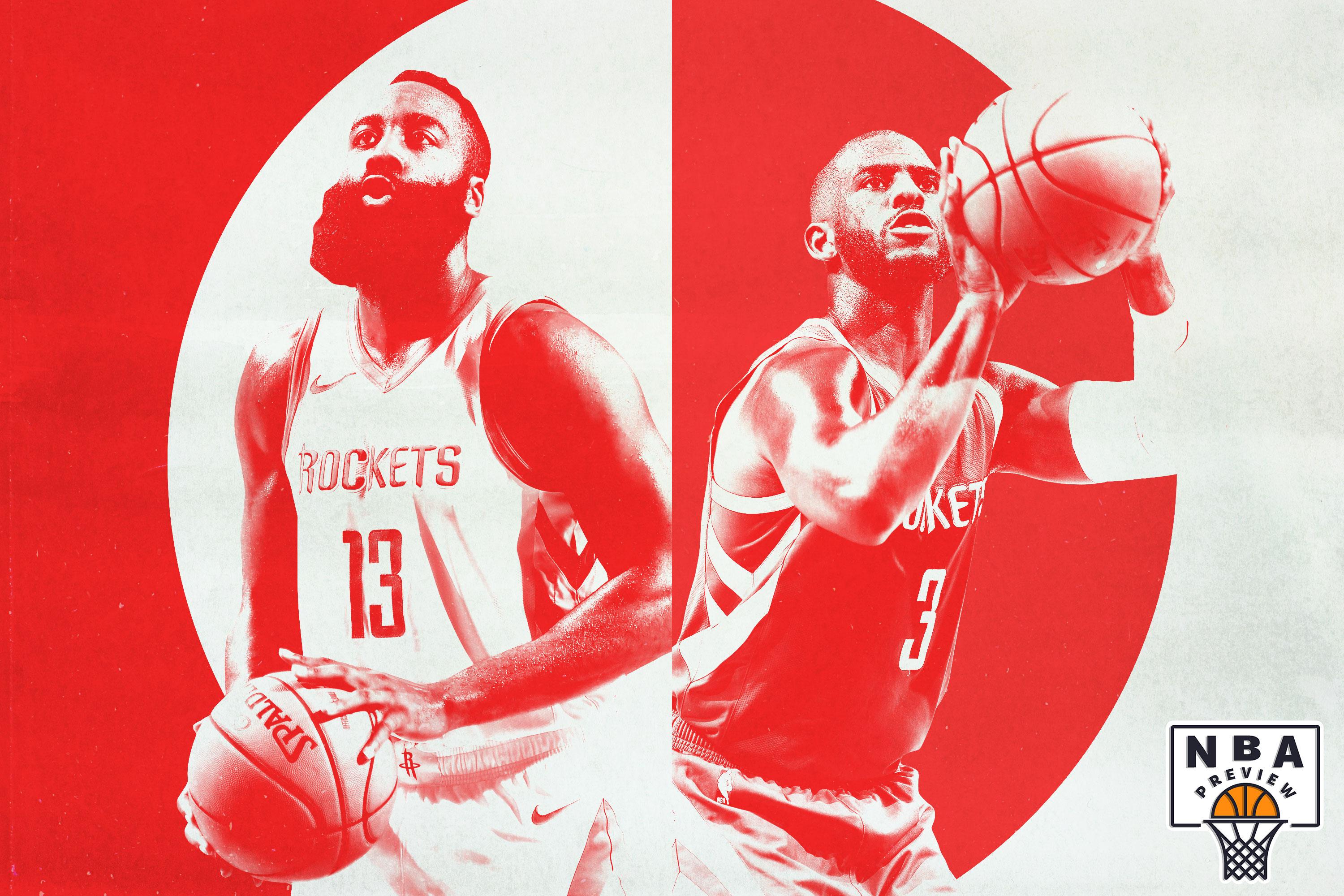
Break out your Ben Simmons hand trackers—the NBA is back. We’re counting down the days until the 2018-19 season tips off on October 16 by taking a hard look at the floor and ceiling of every team in the league. This year, each Best Case, Worst Case capsule is also accompanied by The Ringer’s preseason ranking, our staff’s best guess about where that team will finish this season. We look forward to your emotionless, considered responses.
Ringer Preseason Ranking: 3
Last Season: 65-17
Notable Additions: Carmelo Anthony (free agency), Michael Carter-Williams (free agency), Marquese Chriss (trade), James Ennis (free agency)
Notable Subtractions: Trevor Ariza (free agency), Luc Mbah a Moute (free agency), assistant coach Jeff Bzdelik (retired)
Vegas Over/Under: 54.5
Team MVP: Chris Paul
Best-Case Scenario: Star power and infrastructure overcome the losses on the wing, and this time, a fully healthy Rockets team topples the Warriors dynasty.
Given the existential crisis that erupted over Golden State’s trouncing of Cleveland in the NBA Finals, let’s begin with an important reminder: Houston was an injury and a mathematical improbability away from ending the Warriors’ run before they even got there. The jab-stepping, 3-point-shooting monster that Daryl Morey created to dethrone the most dominant team in basketball was indeed the champs’ biggest challenge: An offense built to manipulate space and the rule book led the league in the regular season, and one of the league’s switchiest defenses bordered on elite. Watching James Harden stare down the defense for 21 seconds before drawing a foul may not have been watchable on most nights, but what the Rockets have concocted works. Now we’ll see if they can stay ahead of the curve as the rest of the league attempts to replicate their success.
Instead of shelling out roughly $19 million (plus tax) to retain Ariza and Mbah a Moute, whose defensive versatility and floor-spacing were integral to Houston’s machine, Morey bought low on four flawed contributors in the apparent hope that playing alongside the core of James Harden, Paul, Clint Capela, and P.J. Tucker will bring out their best. Let’s be clear: Anthony, Carter-Williams, Chriss, and Ennis were not very good last season; in fact, each of the first three shot career lows from the floor. But all four bear the rough outline of a Mike D’Antoni player: Ennis as a 3-and-D wing; Carter-Williams as a long, switchable defender; Chriss as an athletic lob finisher; Melo as an isolation scorer. While the rest of the league pays a premium for shooting and switching, the Rockets are trying to incubate their own advantages. It’s a risk, given how thin their rotation already got in the postseason, but who would bet against Morey at this point?
In the end, the framework that propelled the Rockets’ league-leading win total is still in place. Three-pointers are still worth more than 2-pointers, and the Rockets take more than anyone. Foul-drawers may receive even more favorable officiating, and the Rockets employ the best in the business. Harden is incredible. Paul, when healthy, is still one of the best two-way players in the league. Don’t overthink this: Houston will be good.
Worst-Case Scenario: The Rockets didn’t get any better, and thus are already doomed.
About that almost-stopping-the-Warriors thing. Here’s what Golden State’s locker room had to say immediately after it rallied back from an 11-point halftime deficit in Game 7 to claim its fourth straight Western Conference title.
“There was a calmness at halftime in the locker room because we knew how bad we were playing, [but] we were in this situation before,” Stephen Curry said.
“Our talent took over,” Steve Kerr said. “Simple as that.”
Maybe the trash-talking-est team in the league was merely puffing out its chest after a job well done, but it’s never a good sign when the response to being pushed to the brink is the verbal equivalent of kicking your feet up and sipping on a Mai Tai. What we’ve learned during the past four seasons under the Warriors’ rule is that it will take a perfect storm to knock them off. The very unfortunate, yet very real, possibility is the Rockets got just that, and still couldn’t finish the job. In the offing, the Warriors added DeMarcus Cousins, who, even if he drops off an expected 8 percent, will still be able to generate offense at an All-Star level upon his return; the Rockets’ big bet, meanwhile, will be attempting to resuscitate a former All-Star who still carries himself as one.
Morey memorably said in the summer of 2017 that the long odds the Warriors foist upon the rest of the league force a team to up its risk profile. Two weeks later, Morey traded for Paul, pairing two of the most ball-dominant guards in the game. Filling out this season’s rotation with long shots, rather than a 33-year-old and a 32-year-old who was unplayable in the playoffs after a shoulder injury, could be viewed as yet another aggressive approach. But while the fliers Houston took provide some flexibility—Brandon Knight’s terrible contract is worth about $6 million less than Ryan Anderson’s terrible contract this season—it’s hard to read the decision to punt on matching pricey one-year offers for Ariza and Mbah a Moute as anything more than an avoidance of a higher luxury-tax payment. Which is especially confounding when it comes in the same summer they committed more than $85 million for Chris Paul’s age-35 and age-36 seasons. The Rockets are built to win now, yet they traded what works for what might work. Maybe there’s more to come before the trade deadline, but for now, the trade looks like one of the few that Morey didn’t win.
TL;DR: The Rockets will once again be one of the NBA’s best teams, but it will be hard to get any further after a static offseason.


